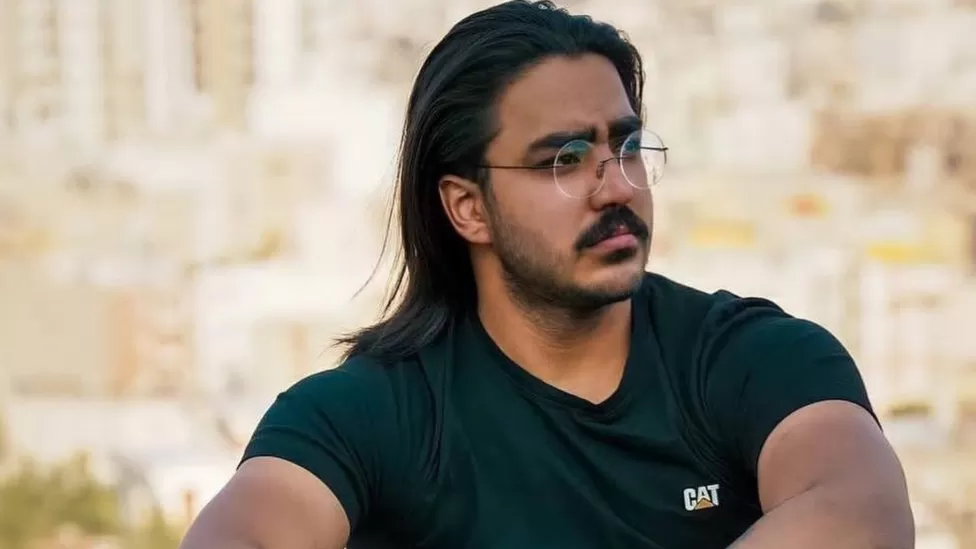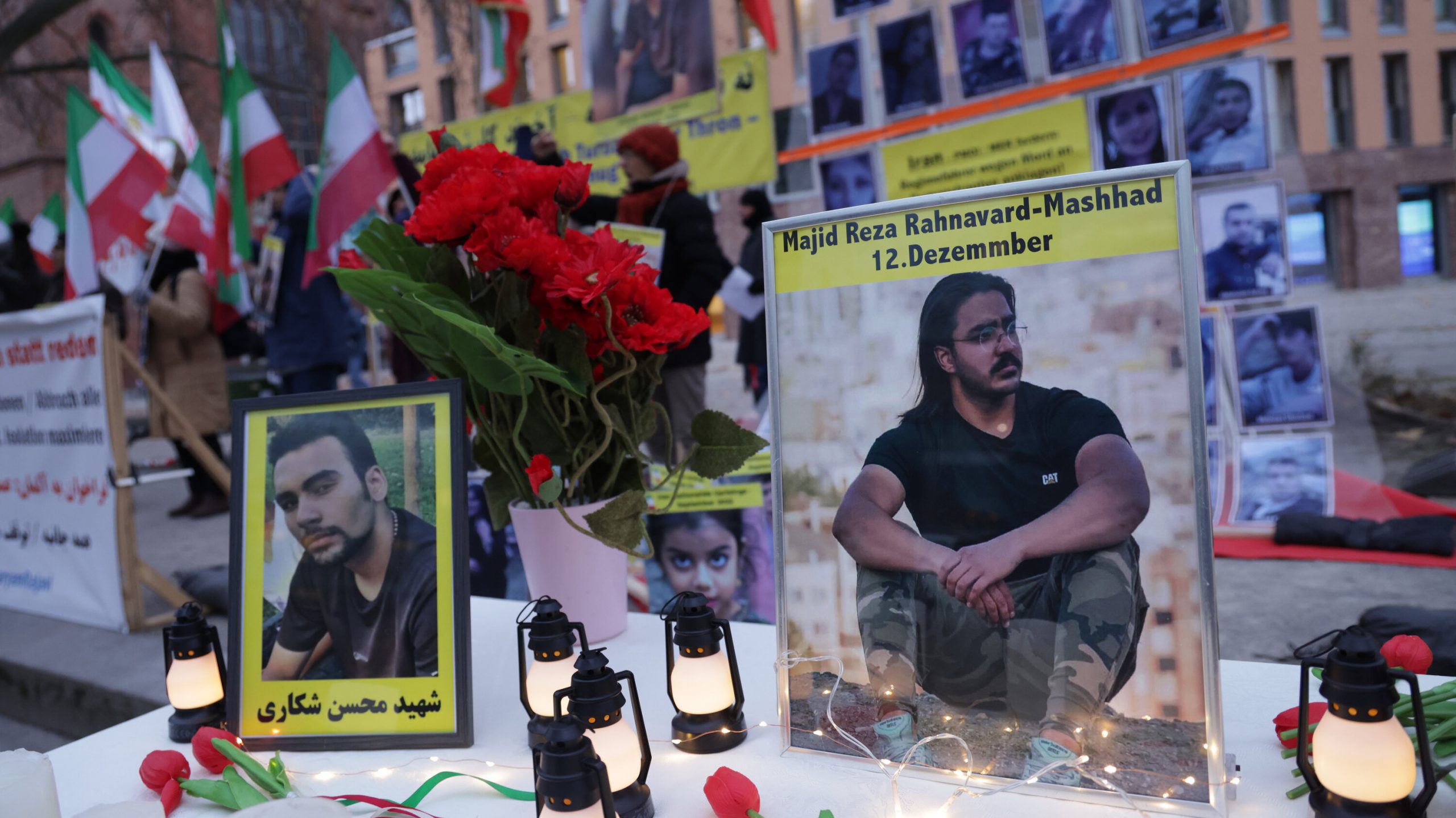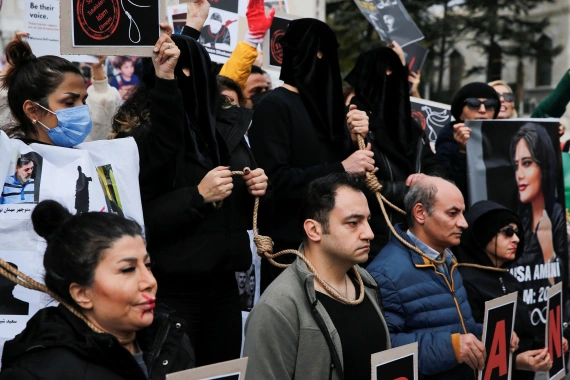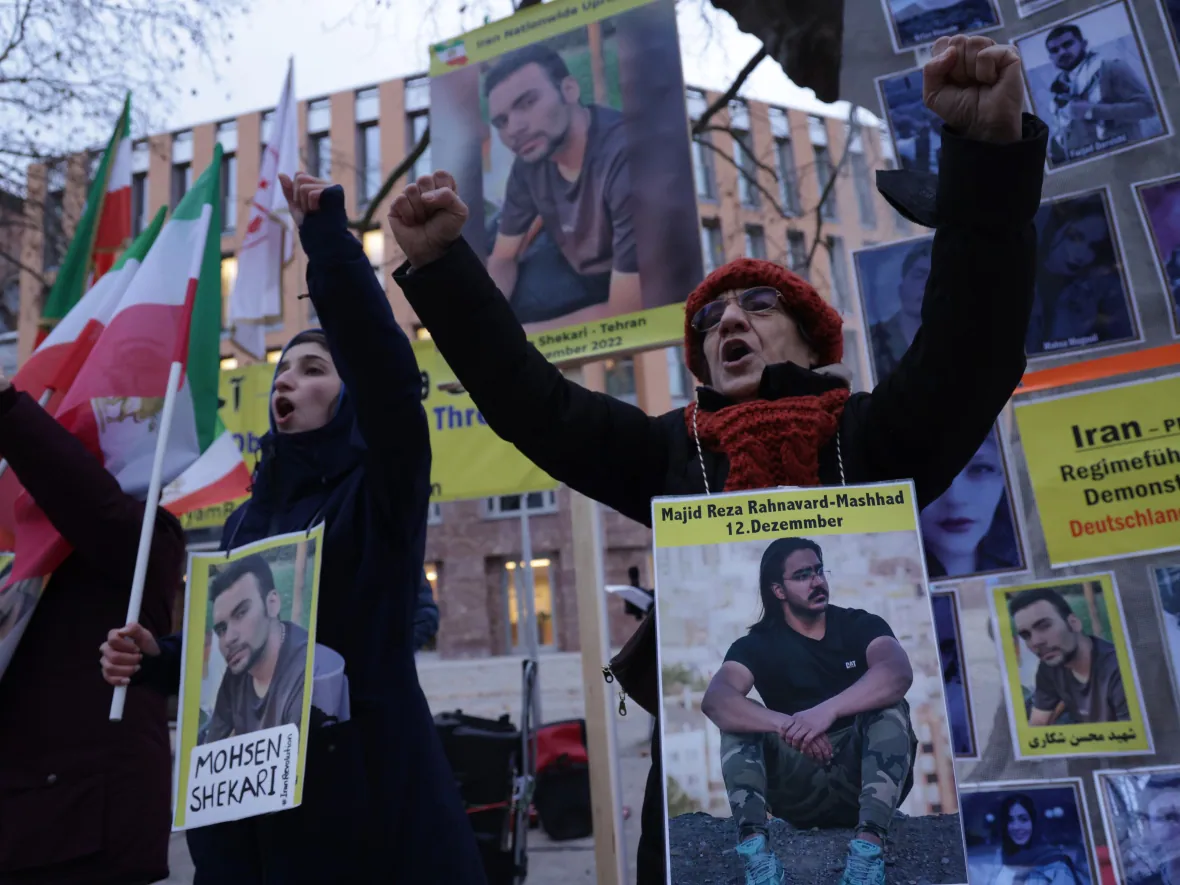
Iran says it has publicly hanged a 23-year-old in what is the second execution linked to the recent anti-government protests.
Majidreza Rahnavard, 23, was hanged early on Monday in the city of Mashhad, the judiciary said.
A court convicted him of “enmity against God” after finding he had stabbed to death two members of the paramilitary Basij Resistance Force.
Rahnavard was hanged just 23 days after his arrest.
Human rights groups have warned that protesters are being sentenced to death after sham trials with no due process.
His mother was not told of the execution until after his death.
His family were then given the name of a cemetery and a plot number. When they turned up, security agents were burying his body.
Opposition activist collective 1500tasvir tweeted that the family were telephoned by an official at 07:00 local time and told: “We have killed your son and buried his body in Behesht-e Reza cemetery.”
The judiciary’s Mizan news agency said Rahnavard was hanged “in the presence of a group of Mashhadi citizens” and posted several pre-dawn photographs reportedly showing the execution.
In the images a man could be seen hanging from the cable in front of onlookers – it is not clear how many people attended the execution, or who they were.
Rahnavard was denied a lawyer of his choice for his trial. The lawyer he was given did not put up a defence.
Mizan had previously reported that he was accused of stabbing to death two members of the Basij on a street in Mashhad on 17 November. The Basij is a volunteer force often deployed by Iranian authorities to suppress dissent.
Mahmood Amiry-Moghaddam, director of Norway-based Iran Human Rights, said on Twitter that Rahnavard’s sentencing was based on “coerced confessions, after a grossly unfair process and a show trial”.
“This crime must be met with serious consequences for the Islamic Republic,” he said, adding that there was a “serious risk of mass execution of protesters”.
The women-led protests against Iran’s clerical establishment were sparked by the death in custody of Mahsa Amini, a 22-year-old woman who was detained by morality police on 13 September for allegedly wearing her hijab, or headscarf, “improperly”.
They have spread to 161 cities in all 31 provinces and are seen as one of the most serious challenges to the Islamic Republic since the 1979 revolution.
Iran’s leaders have portrayed the protests as “riots” instigated by the country’s foreign enemies. However, the overwhelming majority of protesters have been unarmed and peaceful.
























